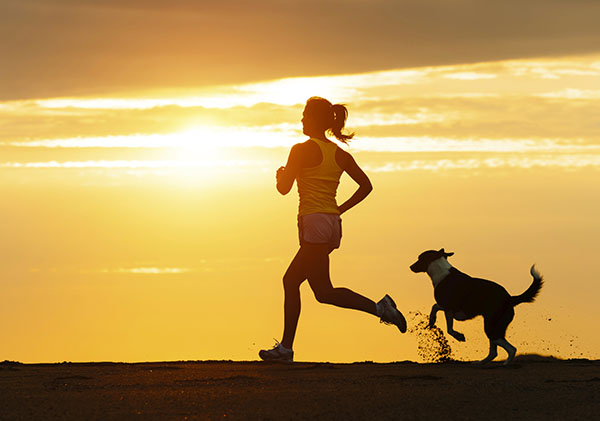The new year is the perfect opportunity for a fresh start, whether you’re looking to lose weight, find a new job or save money. When thinking about your New Year’s resolution, consider your pets’ needs. If your pet is overweight or heavy, 2015 is perfect to incorporate a new diet and exercise regimen to start them on the road to better health. Check out these five tips to help your family pet shed a few pounds this year.
Measuring Cups
Pet owners are prone to guesstimating every time they pour food into a bowl and often end up overfeeding. If you do this, try using an 8-ounce measuring cup to avoid high calorie consumption and weight gain. Helping your pet lose weight can be as simple as measuring the amount of food you give them.
Take into account the feeding guidelines on pet food labels. These serve as a great basis for figuring out how much food your pet really needs. For young, old, neutered or spayed pets, calorie intake can differ. Make sure to have an idea of just how much you should be serving your furry friend. Remember, you have control over how much they eat.
Set a Goal for Calorie Intake
Just like humans, energy intake for pets should vary with age. Older pets generally have lower energy requirements. Like us, older pets can benefit from a moderate diet that provides a good source of essential vitamins and minerals to maintain heart and bone health.
Lower energy requirements are often suggested for pets that have been recently fixed. Research has linked weight gain to spaying and neutering. While your pet may experience weight gain after these procedures, it is often temporary and due to the stress of surgery. Simply monitor their diet and all should be fine.
If your pet suffers from a medical issue, they may need a specific diet to maintain their health. For growing and adult pets, calorie intake is higher. Focus on picking a diet suited to their age as a means of keeping them weight-healthy. Consult with our veterinarians for specific details on your pet’s current nutrient requirements and how to meet their nutritional needs.
Hit the Outdoors
Other than dieting, lack of physical activity is one of the main reasons dogs experience weight gain. If one of your New Year’s resolutions is to start exercising, bring your dog along so you both benefit. Healthy physical activities like running and hiking are great ways for you and your pet to bond and get into shape.
Don’t Forget About Playtime
Cats are not much for the outdoors, but that doesn’t mean they have to be lazy couch potatoes all day. Find toys that trigger their attention and get them to run around for a little physical activity. The key is to engage them with fun and thrilling toys like lasers, catnip toys, crinkly toys, balls with bells and feathers, and even cat trees.
Visit Our Vet
Before making any drastic changes to your pet’s diet, or if you suspect they are suffering from an illness due to their weight, please consult with our veterinarian. Preventative care is the best way to maintain your pet’s health and also helps with managing obesity, arthritis and diabetes. Take advantage of your next visit by asking our vet about diet changes. Schedule an appointment with us for your pet’s healthy New Year at (956) 787-2709.
